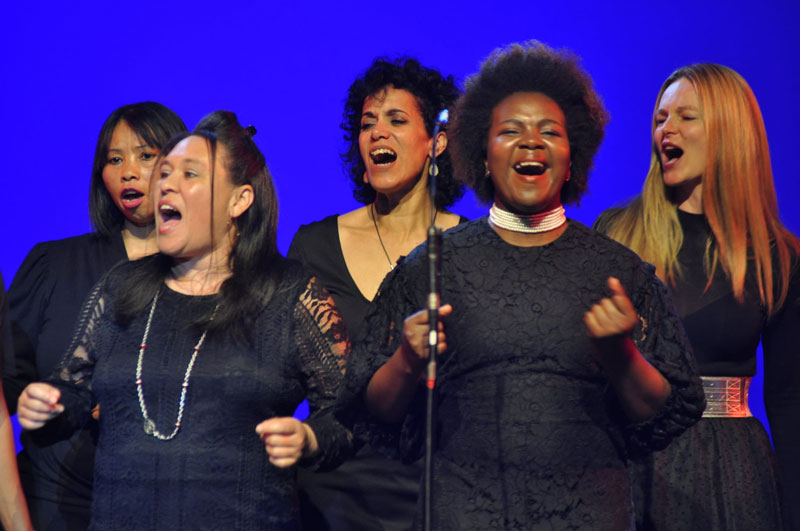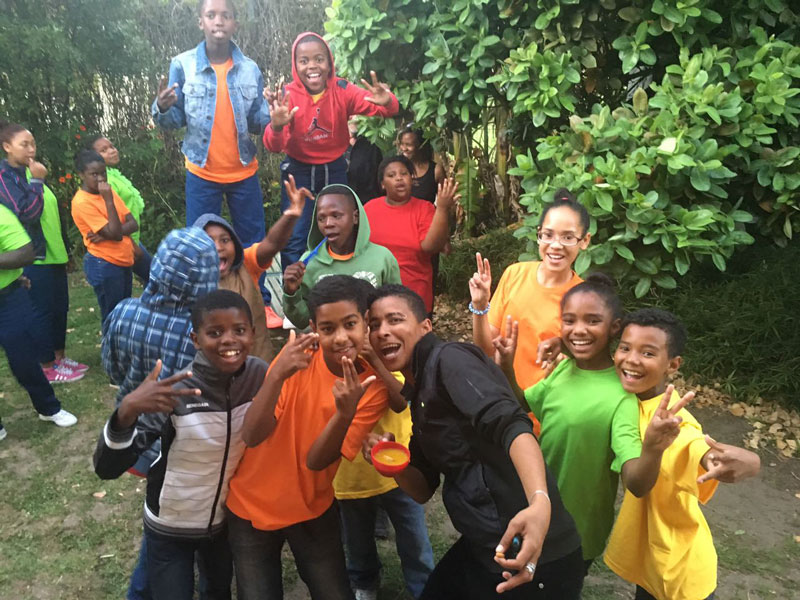Mansoor Jaffer
Community Chest and the Cape Cultural Collective joined forces to produce a publication called Heritage in a time of global crisis: Building resilience and pushing boundaries. Seventeen contributors share various perspectives on heritage in its various manifestations. This article – that appeared in the publication – focuses on the work of the Cape Cultural Collective in the last few months.
We sing today with respect and tolerance.
Siyacula namhlanje sine ntlonipho nomonde
Ons sing vandag met respek en verdraagsaamheid
These lines introduce the English, Xhosa and Afrikaans segments of a declaration performed with music by the Cape Cultural Collective’s Rosa choir.
The full declaration states;
We sing today with respect and tolerance.
To express our common humanity
Connecting with our roots
Forging bonds of friendship
And affirming the value of each person
The declaration expresses some of the core values underpinning the work of the CCC. These values can be further understood within the paradigms of the philosophy of Ubuntu that Archbishop Tutu once described as the “the essence of being human”. It asserts that the humanity of each of us is inextricably bound to that of others.
The values of the CCC are also rooted in the experiences of many of its founder members who were activists against apartheid and for a non-racial, non-sexist, democratic and shared South Africa.
Since inception in 2007, our various programmes and projects have advanced these values –all drawn from our Heritage – bringing together artists and communities across the artificial divides created by political, economic and social systems.
Activists used the Arts as a potent weapon against the crime of apartheid. Its enormous power can thus be unleashed to transform society, even in a time of a pandemic.
The arts produces critical thinkers, builds self-esteem and connects people at a deep level.
It stimulates the imagination, boosts self-esteem, improves your cognitive abilities and general health, enhances problem-solving skills and improves the overall performance of learners.
We have experienced and witnessed many of these benefits. We encourage a culture where each has to learn regardless of their class position, ethnicity or gender. We actively discourage saviour or victim syndromes. Each participant has either something to give or something to receive.
We inherited systems and structures built during colonialism and apartheid. In addition, we are painfully aware that despite advances under democratic rule, we are presently stuck with a societal leadership that seems incapable of meeting the country’s critical challenges.
The Covid 19 pandemic has deepened our crisis. More people are out of work and hunger depressingly gnaws at growing numbers of households in the country. The very basis of human interaction has changed dramatically.
In these conditions, building resilience and pushing boundaries present themselves as almost insurmountable obstacles.
However, four weeks into the pandemic, we hosted an online fundraiser that generated income for the organisation and for a host of artists. It provided a glimmer of hope and prompted us to explore further the art of the possible.
In May, we drew on a powerful value rooted in our cultural heritage – that of solidarity. It found expression during the 80s with the powerful struggle slogan An Injury to One is An Injury to All. We launched a food drive to support the families of young choir members. The aim to raise R10 000 in order to support 30 families once-off grew into a five months programme that generated more than R50 000 from the public and fed both families and struggling artists through the Cape.

That same month, momentum built when we launched a campaign to expand our Circle of Culture platform. This initiative began about five years back when a few individuals began making small monthly or annual contributions to the CCC. We grew the platform from 60 to 96 contributors, increasing the annual income from this platform by 65%. We began developing this financial model years back to avoid the perils of dependence on government or private sector funding. Zero resources go towards offices, expensive equipment, furniture and highly paid staff. This financial model means that the CCC will emerge from the period of the pandemic financially stronger, bucking the trend in the NPO sector.
The limitations imposed by Covid 19 have severely affected the functioning of our choirs. The energy and adrenalin that accompany physical practices and big performances are absent. The Rosa choir has opted for weekly online practices for learning and keeping the choristers connected. The children’s choir has not met for five months. The junior choir team has engaged the young folk through the food drives as well as art projects and audio and written essay assignments.

We have been involved with a number of online cultural programmes. They are no substitute for live performances but they have allowed us to connect with broader audiences. In July, a Rosa choir video clip featured in a global rally against racism. Early in the pandemic, CCC musicians met in a studio to record original music for ADDRESS UNKNOWN, a short film set in the time of the District Six forced removals. The film premiered in the US and featured at the Durban International Film Festival this month.
A few weeks back, the CCC received funding from the Foundation for Human Rights for the third and final segment of the Voices for Human Rights series that began in 2018. Ten powerful programmes took place in the first two years. Each had a community concert and a workshop for youth focusing on the Constitution and Bill of Rights. The partnership concludes at the end of 2020 after a series of online programmes and investment into equipment and musical instruments.
In order to strengthen our overall resilience and plans for long-term sustainability, we have used some of our time to strengthen our financial, resource, governance, communication and administrative systems. We are hoping that when we can resume our usual programme of community concerts, choral and cultural events and theatre productions, our organisational vehicle will be a lot stronger than it was six months back.
We certainly do not want to tempt the unpredictable virus that is capable of inflicting much damage but perhaps we may be able to show it the proverbial middle finger a few months from now.
See the full publication by clicking on the link below;
https://comchest.org.za/publications










